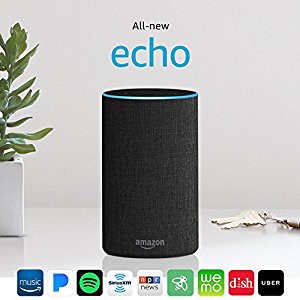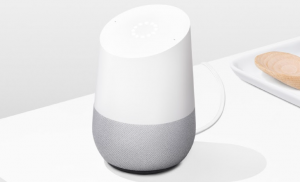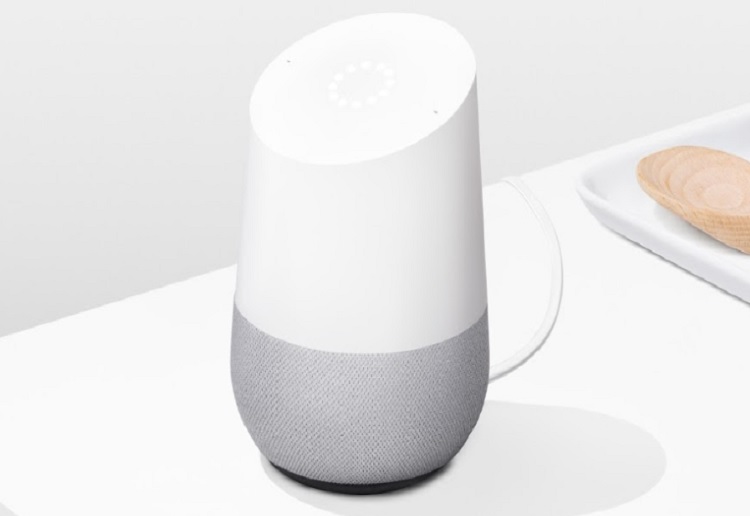Many families have purchased voice-activated home-assistants like Google Home and Amazon Echo, under the belief that they’ll make family life easier. But that is not always the case as Dr Kristy Goodwin explains…
These devices claim to do everything from reading audio books to kids, to finding you a recipe based on the current ingredients in your fridge, updating you about weather conditions, assisting with homework, flicking off light switches and even play guided meditations to help your kids calm down.
On the surface, these devices seem like a great tool to make parenting life that bit easier (who wouldn’t want a device that helps with homework and calms your kids after they’re over-excited?) However, parents also need to consider some other factors before inviting Alexa or other digital family members into their homes.


Privacy
This is a serious concern, especially when we consider that kids are using these home assistants. The terms and conditions (that many of us skip over) state that data from these devices are saved via a cloud and that third parties can potentially access the data accrued from these devices (i.e. transcripts of audio recordings). Whilst you can certainly set your privacy settings (and really must do so, especially when it comes to deleting your command and search history) I’m really worried that home assistants can collect sensitive information about children. Do you want your child’s private information such as their medical issues, friendship concerns or anxieties stored and potentially shared with other parties?
Kids lack a filter at the best of times and I’m concerned that they may divulge very private and sensitive information and these digital assistants are recording these
conversations. I’m concerned about exactly how this data is being aggregated, where it’s stored and how it’s potentially being used and distributed to third parties, both now and in the future. The policies regarding the ways in which data is gathered, stored and used are obscure and the lack of transparency means that data acquired via home may be accessed and used in the future. For example, are transcripts of audio recordings able to be sold to third-party app developers or advertisers?
Whilst the data is encrypted and not permanently stored, the fact that it’s digitally saved and archived in ‘the cloud’ means that data breaches are possible, if not imminent.
Parents must set up home assistants to ensure that the microphone is disabled on devices when you don’t want it hearing you, or your kids’ private conversations (this is a big ask for kids to remember to do, especially if they find it challenging to remember where they placed their school bag each day). I’m a little dubious on the ability to completely disable the microphone, as these devices can switch back on via a voice command. Can we really be guaranteed that they’re not recording data when they’re switched ‘off’? Some devices have opt-in voice control and others store voice-based queries only if they hear a ‘hot word’ in the voice command.
Both the Echo and Google Home devices allow kids to create individual profiles (in fact you can create profiles for all members of your household) to allow the device to recognise their voices and therefore create a more tailored experience through their individualised profile.
Social Skills
Child development experts and psychologists have raised concerns that having a digital home assistant may adversely impact on young kids’ conversational skills, as these devices are not conversational partners. Research confirms that language skills are developed through ping-pong, serve-and- return interaction and talking to Alexia is no substitute for real human interaction. These devices are devoid of human nuances like facial expressions and tone. There are also concerns that kids can become rude and demanding if they become accustomed to placing demands with a digital assistant who instantaneously responds.
These devices can teach kids that every question they have can be instantly answered. Whilst this can be super handy if you have an inquisitive 4-year- old who asks 73 questions before breakfast, are we setting our kids up to always expect instant gratification? These devices don’t reprimand kids for being rude or disrespectful and the absence of facial expressions and human interactions means that kids can miss out developing critical social and interpersonal skills. The device continues to respond to their demands even when they’re being rude or silly, so this can encourage disrespectful behaviour. If you do introduce these home assistants, make sure you establish clear expectations and rules about how to communicate and use the device. We must teach our kids to use technology responsibly and respectfully.
Additional Costs
Many families are surprised to learn that there are additional costs beyond the initial purchase of the device that need to be considered, especially if you want full functionality. Smart home products like home security and automated light bulbs obviously incur additional fees. There are also ongoing fees and subscriptions for many of the services that these devices work with (e.g. Apple Music, Spotify, Google Play Music, Amazon Prime).
Whilst I can certainly see the convenience and appeal of home assistants (I love anything that makes life easier), we need to carefully consider their use and our kids’ privacy before we plug them in at home.
Read more: What Parents Need to Know About Using Google Home Around Young Kids
Dr Kristy Goodwin is a digital parenting educator, speaker, author of ‘Raising Your Child in a Digital World’ and a mum to two energetic boys (who have thrown techno-tantrums). When she isn’t playing backyard soccer, or building sandcastles on the beach near her home on Sydney’s northern beaches, she’s listening to Peter Rabbit on repeat on the iPad. Kristy delivers seminars to parents and professionals throughout the country and has a range of (digital) resources to help navigate kids’ and teens’ digital world without the guilt and guesswork.
Share your comments below.




















-

-
-
meedee said
- 30 Jun 2022
-

-
-
june11 said
- 10 Apr 2018
-

-
-
ella12 said
- 09 Apr 2018
-

-
-
rovermum said
- 09 Apr 2018
-

-
-
mom101628 said
- 04 Apr 2018
-

-
-
mom90758 said
- 04 Apr 2018
-

-
-
Ellen said
- 04 Apr 2018

-

-
-
deb_gs said
- 03 Apr 2018
-

-
-
mom160421 said
- 03 Apr 2018
-

-
-
mom297193 said
- 03 Apr 2018
-

-
-
mom206279 said
- 03 Apr 2018
Post a comment9:19 pm
6:09 am
2:37 pm
2:34 pm
11:07 pm
2:55 pm
7:49 am
8:15 pm
3:05 pm
2:03 pm
12:44 pm
To post a review/comment please join us or login so we can allocate your points.